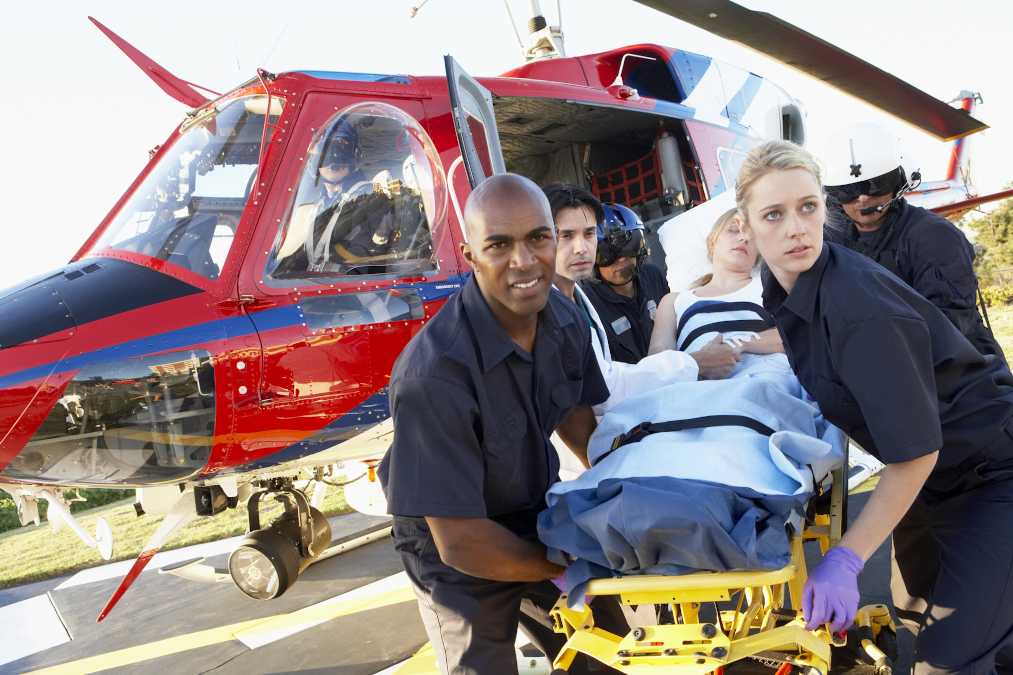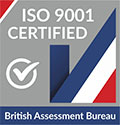If you work in an industry with challenging and remote project sites such as offshore wind or maritime, then you know how important it is to provide offshore health and safety and maritime medical staffing services for your employees.
But even if you have those bases covered, an emergency situation can force you to escalate to medical support beyond what your on-site medical staffing can offer to prevent loss of life.
A Rescue Story From a Ship Off the U.S. East Coast
An RMI client had an employee aboard a ship off the east coast of the U.S. who suddenly developed itchiness, hives, shortness of breath, and wheezing shortly after lunch. He had a history of a peanut allergy and accidentally ate a meal that contained peanuts.
The employee went to the medic on board (not RMI staff) who administered subcutaneous epinephrine and Benadryl by mouth. The patient’s symptoms improved and he was discharged from the clinic. Unfortunately, an hour later his symptoms recurred and worsened.
When he presented again, he was experiencing:
- Severe shortness of breath with low oxygen saturation (as low as 65%).
- Swelling of the face, eyelids, lips, and tongue.
- Wheezing and diffuse hives
The medic administered another dose of subcutaneous epinephrine along with supplemental oxygen, but the patient’s symptoms persisted. He was in severe distress and nearing extremis. The onboard medic decided to call into RMI topside support services for guidance.
The RMI Global Coordination Center (GCC) Gets an Emergency Phone Call
The GCC medical coordination specialist who answered the medic’s call immediately contacted our on-call topside physician, Dr. Michelle McDade. She realized that the onsite medic was out of his comfort zone and needed clear directives and support.
It was a chaotic situation onboard at the time.
The patient was in obvious distress, now on 6 liters of oxygen to maintain normal oxygen levels. He was breathing fast and was experiencing significant swelling of the airways, lips, and tongue.
The patient developed biphasic anaphylaxis, whereby the initial allergic symptoms recurred at a greater severity. If not aggressively managed, anaphylaxis of this magnitude can be fatal.
The RMI Physician Takes Control of the Situation
Once on the phone, Dr. McDade took control of the situation onboard. She reassured the medic and gave clear guidance on what he needed to do to help this man:
- She directed the medic to administer intramuscular (IM) epinephrine.
- She ordered the medic to start an albuterol nebulizer to address the wheezing and difficulty breathing.
- She directed the medic to place an IV to administer other critical medications targeting the anaphylaxis.
While the IM epinephrine bought some time, Dr. McDade realized this patient was very sick and having a life-threatening allergic reaction that was not adequately controlled by current therapy. She ordered the medic to create and administer a “dirty epi dripâ€.
A dirty epi drip is:
- A vial of epinephrine that is put in a liter bag of saline.
- The mixed solution can then be used as an IV infusion of epinephrine.
- The solution infuses at a rate over time to better control the allergic response.
This is a standard approach in resource-rich emergency departments until a pharmacy can supply a more stable dosing solution. Dr. McDade expertly coached this remote medic through creating the drip and successfully infusing it at a therapeutic rate over time.
Global Evacuation Services Are Needed
The GCC and Dr. Mcdade knew that remote medical evacuation services would be needed from the start. They were told that because of where the vessel was located, it would be 2-4 hours before they could get the patient off the ship and into a helicopter.
The patient began to improve on Dr. McDade’s regimen of medications, but they were running out of epinephrine. They knew they needed to evacuate this man to a higher level of care as soon as possible, but they were going to have to provide quality medical care for as long as they could.
Evacuated to the Mainland
Thankfully, the patient stabilized and the U.S. Coast Guard soon arrived and evacuated the patient. He was brought to the U.S. mainland and was able to achieve a full recovery.
Physician Availability Through the GCC
You might be wondering: if your company needs to use topside support, is there always a physician inside of the Global Coordination Center, or are they on-call via mobile phone for a certain amount of time?
- Someone is ALWAYS on call and available.
- For projects all over the world, someone is available 24/7/365.
- If the call doesn’t go through, it’s routed to a backup call tree that extends all the way to the Corporate Medical Director.
- RMI doesn’t miss calls.
Get Instant Access to Life-Saving Medical Support and be Prepared for Emergency Evacuations
Contact us to get started with remote medical assistance services that can save employee lives.
Get Started with Medical Assistance Services

